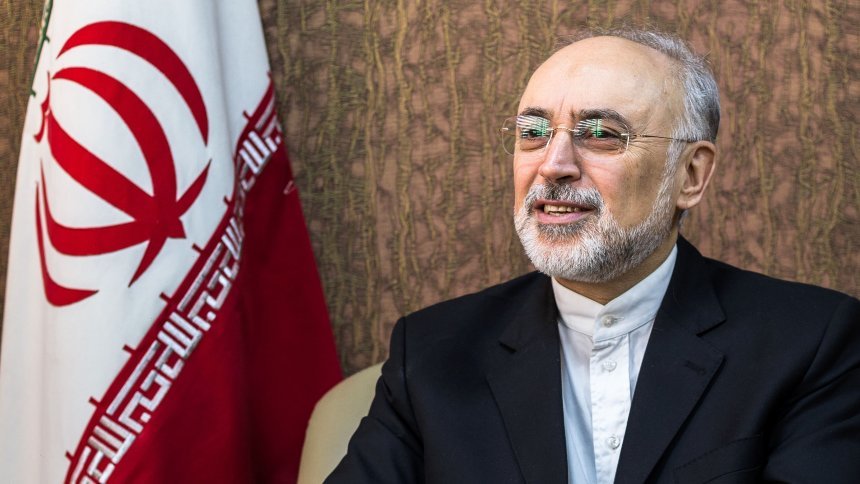Iran has ‘many options on table’ if EU delays its commitments, Salehi says

TEHRAN - Iran’s nuclear chief, Ali Akbar Salehi, has said Iran has “many options on the table” if Europeans delay their commitments under the Joint Comprehensive Plan of Action (JCPOA), the official name for the 2015 nuclear deal.
Salehi made the remarks in an interview with Al-Mayadeen TV channel broadcast on Tuesday.
Under the JCPOA, Iran agreed to slow down its nuclear activities in exchange for termination of economic and financial sanctions.
President Donald Trump withdrew the U.S. from the deal in May and reinstituted sanctions against Iran. However, after months of delays, EU introduced its special mechanism known as INSTEX for non-dollar trade with Iran on January 31.
Iran able to design, build nuclear reactors
On Iran’s ability to enrich uranium at the highest level, Salehi said Iran enjoys highly competent human resources in all fields including nuclear technology.
Salehi, a nuclear physicist, added while other countries import reactors and related technologies, Iran has the knowhow to design, manufacture and manage major parts of nuclear reactors.
Salehi said Iranian nuclear scientists are currently testing the eighth generation of centrifuges, predicting that it will take some 5 to 6 years that such centrifuges enter the nuclear fuel cycle.
He added all Iran’s nuclear researches are carried out based on the JCPOA, reminding that the deal does not restrict researches related to advanced centrifuges.
Iran has not lost anything in the technical realm after the signing of the JCPOA and this has fueled Trump’s anger, he opined.
“We accepted some restrictions to adhere to our commitments under the JCPOA, but these restrictions have not had a significant effect on the speed of Iran’s nuclear industry development. If it is decided to return to the pre-JCPOA era, we will remove uranium enrichment restrictions based on our needs.”
Expressing Iran’s readiness to provide regional countries with nuclear science and services to build research reactors, Salehi said such a cooperation can provide a good ground for reviving the lost trust between Iran and the Persian Gulf Arab states.
Salehi, who acted as foreign minister from 2011 to 2013, also said the West does not allow regional states to master nuclear fuel cycle unless they decide to achieve political independence.
Iran has paid enormous cost to prove its right to peaceful uses of nuclear energy and other regional states may not be ready to bear such huge expenses, the nuclear chief remarked.
Salehi also dismissed claims by certain Arab countries that Iran’s nuclear facilities are not safe, saying all Iran’s nuclear plants are working in tandem with safety standards of the International Atomic Energy Agency (IAEA).
SP/PA
Leave a Comment